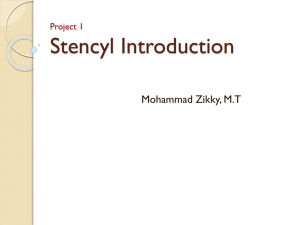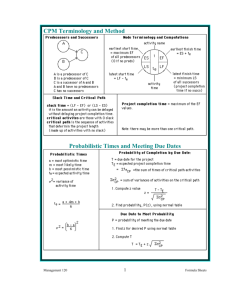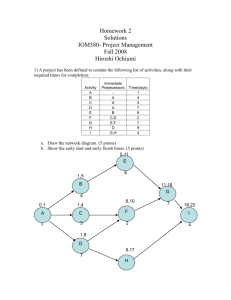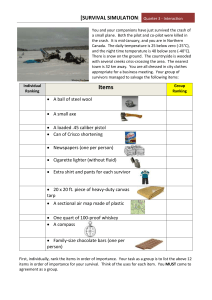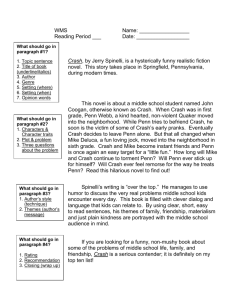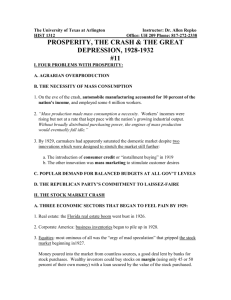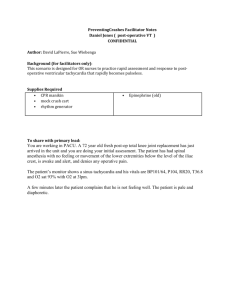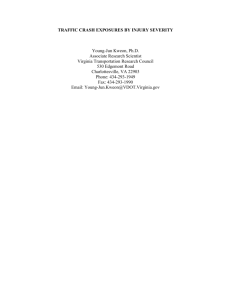Vidal, Ricarda Death and Desire in Car Crash Culture A Century of
advertisement
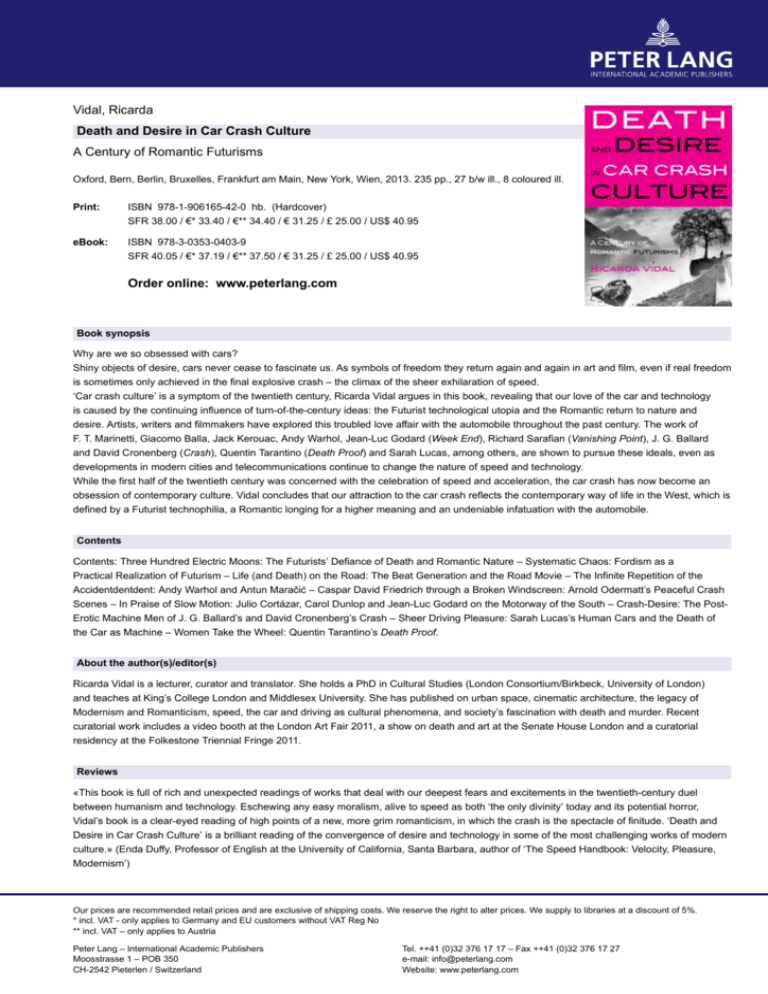
Vidal, Ricarda Death and Desire in Car Crash Culture A Century of Romantic Futurisms Oxford, Bern, Berlin, Bruxelles, Frankfurt am Main, New York, Wien, 2013. 235 pp., 27 b/w ill., 8 coloured ill. Print: ISBN 978-1-906165-42-0 hb. (Hardcover) SFR 38.00 / €* 33.40 / €** 34.40 / € 31.25 / £ 25.00 / US$ 40.95 eBook: ISBN 978-3-0353-0403-9 SFR 40.05 / €* 37.19 / €** 37.50 / € 31.25 / £ 25.00 / US$ 40.95 Order online: www.peterlang.com Book synopsis Why are we so obsessed with cars? Shiny objects of desire, cars never cease to fascinate us. As symbols of freedom they return again and again in art and film, even if real freedom is sometimes only achieved in the final explosive crash – the climax of the sheer exhilaration of speed. ‘Car crash culture’ is a symptom of the twentieth century, Ricarda Vidal argues in this book, revealing that our love of the car and technology is caused by the continuing influence of turn-of-the-century ideas: the Futurist technological utopia and the Romantic return to nature and desire. Artists, writers and filmmakers have explored this troubled love affair with the automobile throughout the past century. The work of F. T. Marinetti, Giacomo Balla, Jack Kerouac, Andy Warhol, Jean-Luc Godard (Week End), Richard Sarafian (Vanishing Point), J. G. Ballard and David Cronenberg (Crash), Quentin Tarantino (Death Proof) and Sarah Lucas, among others, are shown to pursue these ideals, even as developments in modern cities and telecommunications continue to change the nature of speed and technology. While the first half of the twentieth century was concerned with the celebration of speed and acceleration, the car crash has now become an obsession of contemporary culture. Vidal concludes that our attraction to the car crash reflects the contemporary way of life in the West, which is defined by a Futurist technophilia, a Romantic longing for a higher meaning and an undeniable infatuation with the automobile. Contents Contents: Three Hundred Electric Moons: The Futurists’ Defiance of Death and Romantic Nature – Systematic Chaos: Fordism as a Practical Realization of Futurism – Life (and Death) on the Road: The Beat Generation and the Road Movie – The Infinite Repetition of the Accidentdentdent: Andy Warhol and Antun Maračić – Caspar David Friedrich through a Broken Windscreen: Arnold Odermatt’s Peaceful Crash Scenes – In Praise of Slow Motion: Julio Cortázar, Carol Dunlop and Jean-Luc Godard on the Motorway of the South – Crash-Desire: The PostErotic Machine Men of J. G. Ballard’s and David Cronenberg’s Crash – Sheer Driving Pleasure: Sarah Lucas’s Human Cars and the Death of the Car as Machine – Women Take the Wheel: Quentin Tarantino’s Death Proof. About the author(s)/editor(s) Ricarda Vidal is a lecturer, curator and translator. She holds a PhD in Cultural Studies (London Consortium/Birkbeck, University of London) and teaches at King’s College London and Middlesex University. She has published on urban space, cinematic architecture, the legacy of Modernism and Romanticism, speed, the car and driving as cultural phenomena, and society’s fascination with death and murder. Recent curatorial work includes a video booth at the London Art Fair 2011, a show on death and art at the Senate House London and a curatorial residency at the Folkestone Triennial Fringe 2011. Reviews «This book is full of rich and unexpected readings of works that deal with our deepest fears and excitements in the twentieth-century duel between humanism and technology. Eschewing any easy moralism, alive to speed as both ‘the only divinity’ today and its potential horror, Vidal’s book is a clear-eyed reading of high points of a new, more grim romanticism, in which the crash is the spectacle of finitude. ‘Death and Desire in Car Crash Culture’ is a brilliant reading of the convergence of desire and technology in some of the most challenging works of modern culture.» (Enda Duffy, Professor of English at the University of California, Santa Barbara, author of ‘The Speed Handbook: Velocity, Pleasure, Modernism’) Our prices are recommended retail prices and are exclusive of shipping costs. We reserve the right to alter prices. We supply to libraries at a discount of 5%. * incl. VAT - only applies to Germany and EU customers without VAT Reg No ** incl. VAT – only applies to Austria Peter Lang – International Academic Publishers Moosstrasse 1 – POB 350 CH-2542 Pieterlen / Switzerland Tel. ++41 (0)32 376 17 17 – Fax ++41 (0)32 376 17 27 e-mail: info@peterlang.com Website: www.peterlang.com
